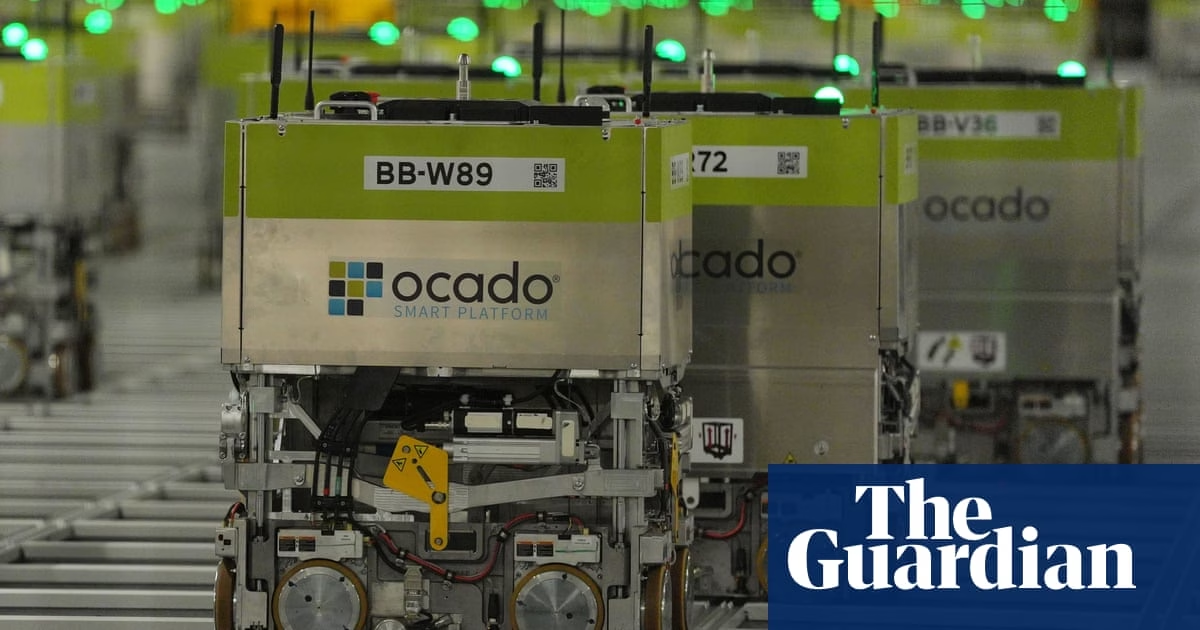Ocado is planning to cut hundreds of jobs within its technology teams as part of its strategy to reduce costs and improve efficiency. The online grocery company, which employs 20,000 people globally, is using advancements in artificial intelligence (AI) to enhance the productivity of its engineering team, leading to a reduction of 500 roles across the technology and finance sectors. The decision to cut jobs is part of a broader effort to meet financial targets and adjust to the demands of a competitive market.
AI technology has already contributed to improved performance in Ocado’s engineering division, which is responsible for developing robotic picking and delivery tools for online retailers around the world. The company co-owns the British grocery delivery service Ocado with Marks & Spencer. CEO Tim Steiner acknowledged the difficulty of such decisions but emphasized the necessity of cost-cutting measures to achieve financial goals.
Despite the challenges of a rapidly evolving industry where technological innovation plays a critical role, Ocado remains committed to rolling out advanced robot technology to its clients, such as Kroger in the US and Casino in France. The current focus on software development requires less manpower than previous projects, and AI implementation in the company’s warehouses will reduce the need for additional workers as sales grow.
At their most advanced warehouse in Luton, more than a third of the items are already being picked robotically, with expectations of this figure rising to 70% in the near future. However, investors reacted negatively to Ocado’s prediction that technology sales would increase by only 10% this year, down from the 18% growth of the previous year, largely due to delays in setting up two new warehouses for their US partner Kroger.
In its latest financial report, Ocado announced a pre-tax loss of £374.5 million for the year ending December 1, slightly narrowed from the £394 million loss the year before. Although technology and retail arms experienced significant gains in profitability, these were offset by the costs associated with the depreciation of older equipment. The company also fully wrote off a potential final payment from the sale of its stake to Marks & Spencer, which had been valued at £29.1 million.
Job cuts in the sector are not isolated to Ocado, with Aldi considering a restructuring that could affect up to 350 roles, primarily in finance and buying, and Sainsbury’s cutting 3,000 jobs through the closure of hot food counters and in-house cafes. Tesco is also reducing its workforce by 400 roles across its head office and stores. This wave of job cuts reflects the pressure companies in the grocery sector are facing to maintain their competitive edge amid increasing operational costs and market pressures.
Source: https://www.theguardian.com/business/2025/feb/27/ocado-to-cut-500-technology-and-finance-jobs-as-ai-reduces-costs









